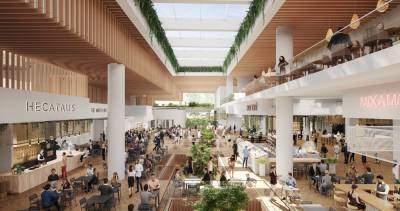Why Vancouver remains resistant to fee simple rowhouses
It's means there are fewer options for families seeking housing, according to architect and developer Michael Geller
Michael Geller never tires of talking about ways to make homes more affordable in Vancouver.
Everyone knows that it’s an expensive city, but that doesn’t faze him a bit. With decades of experience as an architect, urban planner, developer, and real-estate consultant, Geller has a lot of ideas about housing forms, tenures, and financing.
One of these is called freehold, or fee simple, rowhouses.
Most people are familiar with strata rowhouses, which are attached properties more popularly known as townhouses and owned as in a condo setting. Unlike in a strata arrangement, freehold, or fee simple, gives the owner complete control over both the home and the land it sits on.
“While condominium living is perfect for many people, it’s not perfect for everybody,” Geller told the Straight in a phone interview.
A few of these rowhouses have been built in the past few decades in the suburbs, but not in Vancouver.
An exception is the fee simple development by former Vancouver city councillor Art Cowie at Cambie Street and West 33rd Avenue across Queen Elizabeth Park.
As Geller recalled in a background paper about the subject, Cowie had a difficult time getting approval from the city. In the end, he had to build two separate walls for each home, with space between them.
He said that “city lawyers refused to allow the required party wall agreement to be registered on title, since they questioned whether the provincial legislation allowed the agreement to ‘run with the land’ in perpetuity”.
(A party wall agreement is an agreement between two owners that neither will ever knock down their shared supporting wall.)
Cowie died in 2009, before his project, consisting of three units, was completed the following year.
Geller said in the paper that then–city councillor Suzanne Anton suggested a change to provincial legislation to make it easier for future developers to build this type of housing in Vancouver.
That happened when Bill 41, or the Miscellaneous Statutes Amendment Act of 2012, came into force. Among the changes introduced by the bill was an amendment to the Land Title Act, which allowed the registration of a party wall agreement against the title of adjoining parcels.
Following this legislative measure, the City of Vancouver in 2013 started allowing the development of freehold or fee simple rowhouses in zones designated for multifamily developments.
However, as far as Geller knows, none has been built during the past eight years or so in Vancouver.
Although the matter about party wall agreements has been addressed by the province, Geller noted that the city insists on individual hookups for utilities to service each home, which means additional development costs.
“My understanding is that it’s almost the same fee as if it was like a single-family house. So it gets to be too expensive,” Geller told the Straight.
In a separate interview, Coun. Melissa De Genova cited another factor that contributes to the higher cost of developing freehold rowhouses compared to similar but strata-title properties.
“You have to subdivide the land instead of stratifying the land, which often comes at a higher cost,” De Genova said by phone.
City regulations provide that a freehold rowhouse requires a lot with a minimum width of five metres (16.4 feet).
In addition, De Genova explained that subdividing lots makes for a longer development period, which contributes to the hesitance of builders to do such projects.
“It’s a bit of a gamble,” De Genova said.
De Genova also wonders if freehold rowhouses will ultimately provide an affordable option to households in Vancouver.
In the previous council, she voted against a measure in 2018 that allowed duplexes in most single-family areas.
Referencing recent reports by the Straight, De Genova noted that each half of a newly built duplex is selling for more than the purchase price of the original detached home.
With freehold rowhouses, De Genova is quite wary that these may only make Vancouver more unaffordable.















Comments